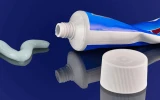The 6 Contaminated Items You’ve Touched by 9 am
Published on Apr 28, 2020

It’s 6.30 am and your alarm is ringing. You reach over and groggily hit your mobile phone’s snooze button. That’s #1. These days, we’re all placing a lot of importance on keeping our homes hygienic and ourselves and our family well. But there are several items around the home we don’t often include in our regular sanitising that could be easily carrying myriad germs and bacteria. And most of them you’ve already touched by 9 am on a typical morning.
6:30 am - Your phone

Research has shown that your mobile phone is much dirtier than you think, collecting more germs than your toilet seat in some instances. Our phones rarely leave our side and we take them everywhere we go, amassing a smorgasbord of bacteria on an item we (very regularly) put near our faces. Whether it’s an alarm, or checking news feeds, many of us pick up our phones not long after we wake from our slumber, exposing us to germs before we’ve even properly opened our eyes.
How to disinfect your phone
Apple recently released cleaning advice for its devices, which recommended using isopropyl alcohol wipes to gently wipe the hard surfaces and to avoid using bleach or getting excess moisture into any openings or crevices. A small amount of Isocol Rubbing Alcohol (40% Isocol to 60% water) on a soft cloth is advised. Give it a wipe down daily.
7:15 am - Your towels

After hitting the snooze button a couple of times, your next step is usually into the shower. Your bath towel sloughs away skin cells every time you use it, which bacteria feeds off. Bacteria also thrives in hot, damp environments and continual re-use of these towels transfers any bacteria onto freshly cleaned skin. Your hand towel is also home to a host of bacteria, too.
Keep your towels fresh
Make sure you are replacing hand towels every few days, particularly in a busy family home where it is getting used very frequently, and replace your own towel once a week. It’s also important to replace towels if you’ve had guests over.
7:30 am - Your watch

Time to get dressed, and on goes the watch. If it is leather, it can absorb sweat and harbour bacteria, potentially causing skin infections.
How to disinfect your watch
Rubber or plastic are more hygienic options and similar to your phone, but ensure you are giving it regular wipe down with a disinfectant wipe or a little soapy water, especially if it is a fitness watch.
7:40 am - Remote Control

Time for some more morning news or the kids’ daily fix of Peppa Pig. With its crevices, regular use and the fact it is touched by everyone in the family (including toddlers with grubby hands), our remote controls can be havens for bacteria.
How to keep your TV remote control bacteria-free
Your remote is often forgotten in your daily clean. While some sites recommend a plastic-sleeve protector, a disinfecting wipe should suffice. To get around the buttons, dip a cotton tip in some sanitiser and run it around the crevices – with the TV turned off, of course!
8:40 am - Your water bottle

Whether it’s at the breakfast table or if you’re grabbing it on the go, re-usable water bottles are a great way to save cash and the environment at the same time. Your water bottle is potentially loaded with bacteria however, particularly if it is one you take while you’re exercising or re-use over and over again.
Tips to keeping your water bottle bacteria-free
Ensure you buy a water bottle with a wide neck. A narrow-necked bottle makes it easier for bacteria to get trapped and is also harder to clean with a brush or in the dishwasher. Invest in a bottle brush so that you can properly scrub all areas of the bottle crevices with hot, soapy water. And importantly, wash your water bottle after every use and always air dry it completely after cleaning.
8:55 am - Your handbag or gym bag

So, you’re on the way out the door and grabbing your bag? Your handbag (and gym bag, for that matter) is not surprisingly another personal item housing more bacteria than you may think. Your bag gets put on the ground a lot while you’re out in public, potentially collecting bacteria. How many times have you put your bag on the ground of a public restroom, not really thinking about what germs could be hitching a ride?
How to keep your gym bag clean
Avoid placing your handbag or gym bag on the floor in any public place – many restrooms have hooks on the back of bathroom doors you can utilise. Even when at home, you shouldn’t be putting your bag on surfaces such as the kitchen counter to minimise the chance of spreading any bacteria you may have picked up while out and about. Sanitise the exterior and interior of your bag, as well as its contents every couple of weeks.
So, how do you keep these things as clean as possible in the future? Most diseases are spread via the hands so if your own personal hygiene standards are good, just make sure you are thoroughly washing your hands the moment you walk into your home after being out in public. In the meantime, honing your cleaning routine with our tips can really help minimise the spread of illness and keep your family healthy.




